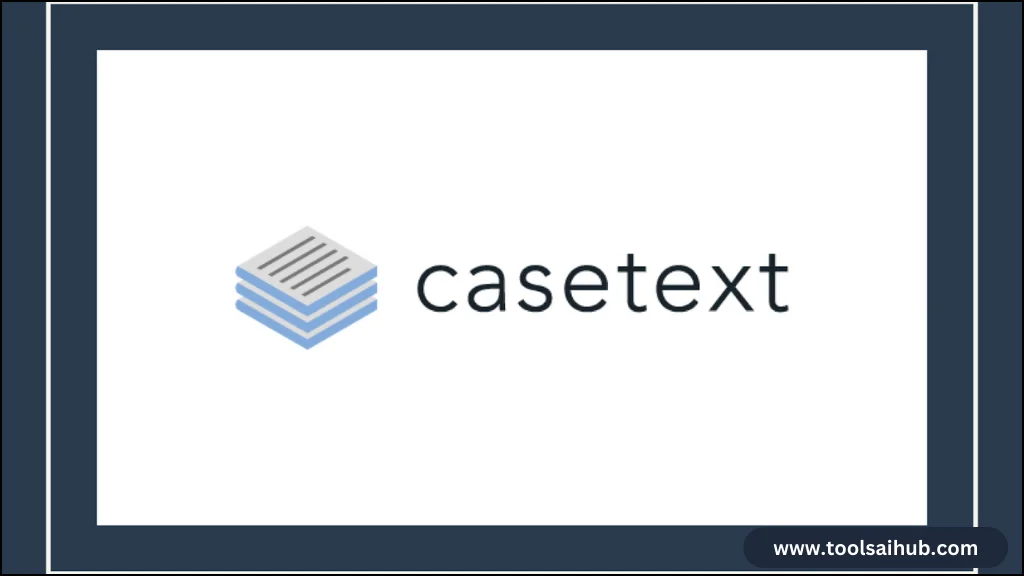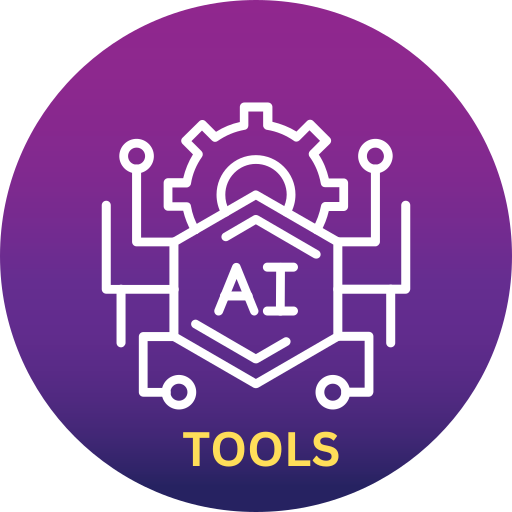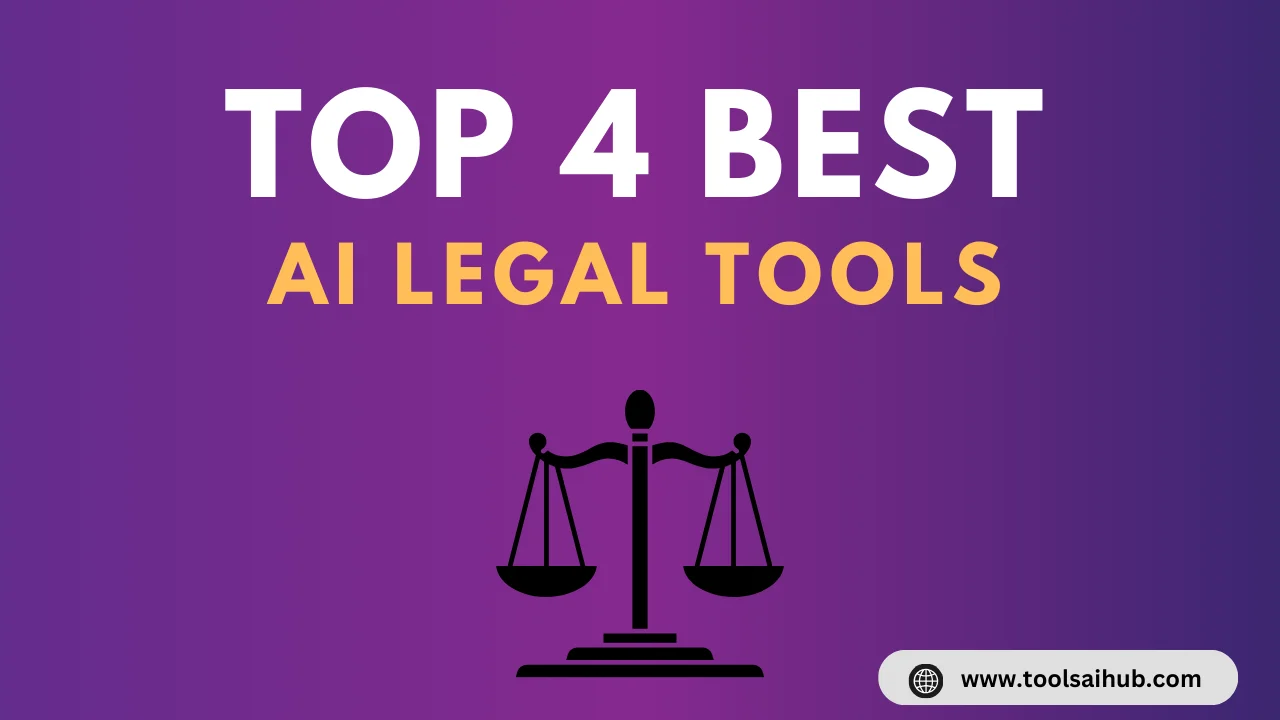In today’s fast-changing legal landscape, artificial intelligence (AI) is becoming a game-changing tool, poised to revolutionize traditional legal practices.
Legal AI tools offer a range of benefits, From automating routine tasks to delivering valuable insights and analysis, AI is reshaping the legal industry. This blog post will explore some of the top legal AI tools and how they can elevate your legal practice.
Benefits of Legal AI?
1. AI automates routine legal tasks, allowing lawyers to focus on more complex and strategic work.
2. By automating processes like document review and contract analysis, AI minimizes the risk of human error.
3. AI provides valuable insights and analysis, helping lawyers make more informed decisions.
4. Automating tasks and improving workflow efficiency with AI can significantly reduce legal costs.
5. AI enables faster, more accurate responses to inquiries, enhancing the overall client experience.
Top 4 Best Legal AI Tools
1. Lex Machina

Lex Machina Lex Machina is a powerful legal research platform powered by AI to analyze extensive legal data quickly and efficiently.
This tool offers valuable insights into case law, attorney performance, and judicial decisions, empowering legal professionals with data-driven analysis.
It enables legal professionals to make well-informed decisions, identify potential risks, and craft effective strategies for success.
Key Features Of Lex Machina
1. Lex Machina offers in-depth analytics on case law, judge behavior, and strategies employed by opposing counsel, empowering legal professionals with valuable information.
2. Users can tailor their searches according to specific jurisdictions, practice areas, and case types, ensuring they find the most relevant results for their needs.
3. By leveraging historical data, Lex Machina forecasts potential litigation outcomes and trends, assisting lawyers in crafting effective strategies.
4. The platform provides visual representations of complex data, making it easier to comprehend information and present findings to clients or colleagues.
5. Lex Machina boasts a vast repository of legal data, including millions of cases, facilitating thorough research and analysis for legal professionals.
Pros of Lex Machina:
1. Lex Machina provides extensive legal data and analytics, significantly enhancing research capabilities for legal professionals.
2. The platform offers predictive analytics, enabling lawyers to forecast litigation outcomes and develop informed strategies.
3. Users can take advantage of customizable search options tailored to specific jurisdictions and case types, ensuring targeted results.
Cons of Lex Machina:
1. Accessing premium features may require a subscription, which can be a financial burden for some users.
2. Some users may find the platform complex, necessitating time to become familiar with its various features.
2. Casetext

Casetext is a powerful legal research platform that leverages artificial intelligence to analyze extensive legal data.
This tool also offers valuable insights into case law, attorney performance, and judicial decisions.
It assists legal professionals in making informed decisions, identifying potential risks, and formulating effective strategies.
Key Features Of Casetext
1. Leverages artificial intelligence to enhance the legal research process, allowing for quicker and more precise searches of case law.
2. Delivers real-time citation analysis to maintain accuracy and relevance, assisting users in locating the most pertinent precedents.
3. Provides tools for thorough analysis of legal documents, highlighting essential information and boosting overall document efficiency.
4. Empowers users to refine their searches according to specific jurisdictions, practice areas, and case types, yielding more targeted results.
5. Promotes teamwork by enabling users to share documents and insights seamlessly, improving communication within legal teams.
Pros of Casetext:
1. Casetext leverages AI technology to streamline the legal research process, allowing for quicker and more precise case law searches.
2. The Smart Cite feature provides real-time citation analysis, ensuring that citations are both accurate and relevant, which enhances the overall quality of research.
3. The platform includes robust tools for analyzing legal documents, helping users save time and improve accuracy in their work.
Cons of Casetext:
1. Access to some premium features may require a subscription, which could present a barrier for certain users.
2. New users might find the platform’s features complex and may need some time to become fully familiar with its capabilities.
3. Relativity

Relativity is a leading provider of e-discovery and legal analytics software. It enables legal teams to efficiently manage and analyze large volumes of electronic data, streamlining the process of identifying relevant information and preparing for litigation.
Relativity’s platform leverages AI and machine learning to automate tasks, boost efficiency, and streamline the entire e-discovery process.
Key Features Of Relativity
1. AI-Driven E-Discovery: Leverages AI to automate e-discovery processes, making data management faster and highly efficient.
2. Document Management: Organizes vast volumes of electronic documents, simplifying the retrieval and review process.
3. Advanced Analytics: Delivers data insights that help legal teams spot trends and extract key information.
4. Customizable Workflows: Provides adaptable workflows tailored to specific cases, enhancing collaboration and productivity.
5. Security & Compliance: Prioritizes data security and ensures compliance with industry standards, safeguarding sensitive information.
Pros of Relativity:
1. Relativity’s AI-driven features automate and simplify e-discovery processes, saving time and resources.
2. Manages and organizes large volumes of data, making document retrieval and review more accessible.
3. Offers flexible workflows tailored to specific case requirements, enhancing team collaboration and productivity.
Cons of Relativity:
1. Subscription fees can be significant, potentially limiting access for smaller legal teams.
2. Advanced features may require dedicated time and training to master effectively.
4. Lawgeex

LawGeex is an AI-powered legal research platform designed to help legal professionals quickly and easily access relevant case law and essential legal information.
Leveraging advanced natural language processing and machine learning, it analyzes legal documents to deliver precise and relevant search results.
Key Features Of LawGeex
1. Automated Contract Review: Powered by AI, it swiftly reviews contracts and flags issues according to pre-set guidelines.
2. Risk Assessment: Detects potential risks within contracts, empowering legal teams to make well-informed decisions.
3. Customizable Templates: Provides tailored contract templates, adaptable to specific business needs.
4. Seamless Integration: Integrates effortlessly with document management and workflow tools, enhancing accessibility.
5. Real-Time Collaboration: Facilitates simultaneous collaboration and contract review among multiple users.
Pros of LawGeex:
1. Accelerates contract review processes, saving valuable time and minimizing manual effort.
2. Identifies and flags potential risks, supporting better decision-making and compliance.
3. Provides adaptable templates tailored to meet specific business needs.
Cons of LawGeex:
1. Access to premium features can be costly, potentially limiting accessibility for smaller firms.
2. Some advanced features may require time and training for users to fully leverage.
You Might Like This
Step By Step Guide Add an AI Chatbot to Your WordPress Site in Minutes
Conclusion:
The legal industry is undergoing a significant transformation, fueled by the growing integration of artificial intelligence. Leveraging AI enables legal professionals to streamline workflows, make more informed decisions, and elevate client service.
Basically, The legal AI tools discussed in this article offer a glimpse into the future of the legal profession. As AI technology advances, we can anticipate even more innovative solutions that will continue to transform the way legal work is conducted.
By adopting these tools, legal professionals can stay ahead of the curve and achieve outstanding results.

